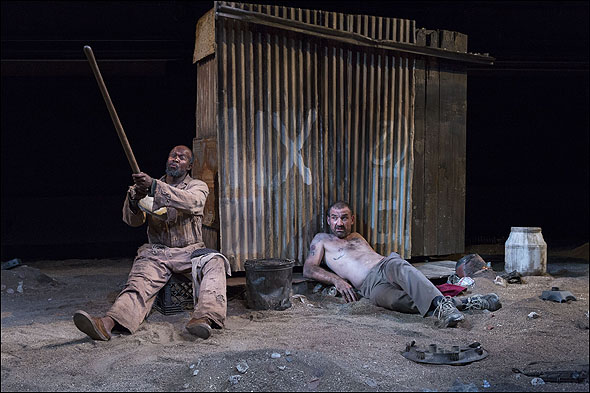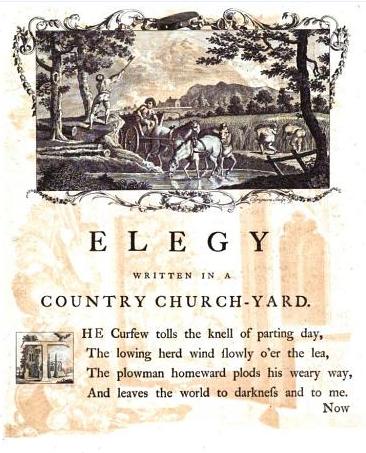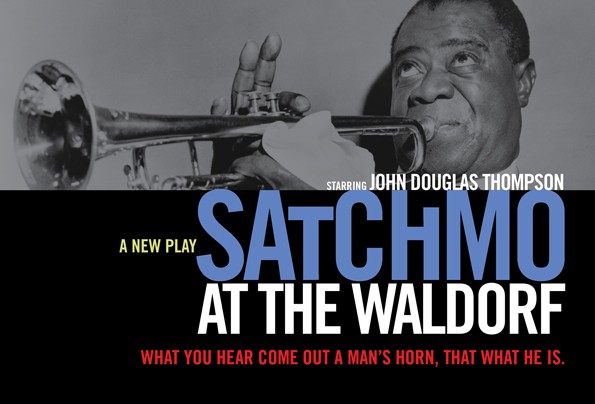Sidney Bechet and Claude Bolling perform “St. Louis Blues” in 1958:
(This is the latest in a series of arts-related videos that appear in this space each Monday and Wednesday.)
Archives for September 2012
TT: Almanac
“Here comes the orator with his flood of words and his drop of reason.”
Benjamin Franklin, Poor Richard’s Almanack
IN THE FOOTSTEPS OF ALAN LOMAX
“The thousands of field recordings of American folk and vernacular music that were made by Mr. Lomax and his colleagues rank high among the cultural treasures to be found in the Library of Congress. Some of them, like ‘Bonaparte’s Retreat,’ have made their way into the collective consciousness of musicians and music lovers throughout the world. Next to nothing is known about most of the people who cut those rough-hewn recordings, nearly all of whom were amateurs or semiprofessionals who made music purely for their own pleasure and that of their families and friends. Yet many of them were also uniquely gifted musicians…”
TT: One-way ticket
Today’s Wall Street Journal drama column is devoted to a pair of New York openings, The Train Driver and Chaplin. The first is superb, the second awful. Here’s an excerpt.
* * *
Athol Fugard long ago chose to walk the shakiest of tightropes by writing artistically serious plays that directly reflected the stormy political life of South Africa, his native land. Now that apartheid is a thing of the past, it stands to reason that some of Mr. Fugard’s earlier work should be looking a bit creaky, if for the best of reasons. But whenever he opts for dramatic poetry instead of tub-thumping, he shows how a gifted artist can write about politics without being devoured by them–and in “The Train Driver,” his newest play, Mr. Fugard’s poetic gifts prove to be as potently suggestive as ever.
 Like “Blood Knot,” the 1961 play that first brought Mr. Fugard to the world’s attention, “The Train Driver,” which was inspired by a true story, is a two-man show whose characters meet in the middle of the racial gulf that continues to cleave the land in which they live. The setting is a squatter-camp graveyard where the unclaimed bodies of unidentified blacks are brought for burial. Simon (Leon Addison Brown), the resident gravedigger, is accosted one morning by Roelf (Ritchie Coster), a bedraggled, desperate-looking white railroad engineer. His presence in a place where “there is no white people sleeping” makes no sense to Simon. Soon, though, it emerges that Roelf has come there to search for the bodies of a black woman and her baby–and that he killed them, albeit accidentally, when the woman deliberately stepped in front of his train for reasons unknown….
Like “Blood Knot,” the 1961 play that first brought Mr. Fugard to the world’s attention, “The Train Driver,” which was inspired by a true story, is a two-man show whose characters meet in the middle of the racial gulf that continues to cleave the land in which they live. The setting is a squatter-camp graveyard where the unclaimed bodies of unidentified blacks are brought for burial. Simon (Leon Addison Brown), the resident gravedigger, is accosted one morning by Roelf (Ritchie Coster), a bedraggled, desperate-looking white railroad engineer. His presence in a place where “there is no white people sleeping” makes no sense to Simon. Soon, though, it emerges that Roelf has come there to search for the bodies of a black woman and her baby–and that he killed them, albeit accidentally, when the woman deliberately stepped in front of his train for reasons unknown….
First performed in the U.S. two years ago at Hollywood’s Fountain Theatre, one of this country’s best small regional houses, “The Train Driver” is now being presented in New York as the final panel in the Signature Theatre Company’s three-installment Fugard series. Mr. Fugard, who is also a first-rate director, has staged it with the unadorned clarity that he brought to the Signature’s February revival of “Blood Knot,” and Messrs. Brown and Coster are both extraordinarily fine….
Rob McClure is arrestingly charismatic and vital in the title role of “Chaplin,” the new Broadway musical about the life of the legendary silent-movie clown. If only the show were silent, too! Warren Carlyle, who choreographed last season’s Broadway revival of “Follies,” has staged “Chaplin” skillfully, while the black-and-white décor–sets by Beowulf Boritt, costumes by Amy Clark and Martin Pakledinaz–is as pleasing as the performances of Mr. McClure and his colleagues. No sooner do the characters open their mouths, though, than “Chaplin” becomes a bathetic, flashback-laden weeper about a misunderstood genius…
* * *
Read the whole thing here.
Athol Fugard talks about The Train Driver:
TT: Born to sing unheard
My “Sightings” column in today’s Wall Street Journal is about The Beautiful Music All Around Us: Field Recordings and the American Experience, Stephen Wade’s important new book about some of the men and women who made the Library of Congress field recordings of American folk and vernacular music. Here’s an excerpt.
* * *
The thousands of field recordings of American folk and vernacular music that were made by Alan Lomax and his colleagues rank high among the cultural treasures to be found in the Library of Congress. Some of them, like “Bonaparte’s Retreat,” have made their way into the collective consciousness of musicians and music lovers throughout the world. Next to nothing is known about most of the people who cut those rough-hewn recordings, nearly all of whom were amateurs or semi-professionals who made music purely for their own pleasure and that of their families and friends….
 Enter Stephen Wade, a musician and folklorist who has long been fascinated by the Library of Congress field recordings. Following in Mr. Lomax’s footsteps, Mr. Wade went back into the field to track down the descendants of 12 of the near-forgotten musicians who recorded for the Library of Congress between 1934 and 1942. He has turned his findings into an extraordinary book called “The Beautiful Music All Around Us: Field Recordings and the American Experience” that was published earlier this month by the University of Illinois Press. It’s a masterpiece of humane scholarship–but one that reads like a detective story. Working against the fast-ticking clock of mortality, Mr. Wade succeeded in documenting the lives and work of a dozen folk artists whose stories came perilously close to vanishing down the memory hole….
Enter Stephen Wade, a musician and folklorist who has long been fascinated by the Library of Congress field recordings. Following in Mr. Lomax’s footsteps, Mr. Wade went back into the field to track down the descendants of 12 of the near-forgotten musicians who recorded for the Library of Congress between 1934 and 1942. He has turned his findings into an extraordinary book called “The Beautiful Music All Around Us: Field Recordings and the American Experience” that was published earlier this month by the University of Illinois Press. It’s a masterpiece of humane scholarship–but one that reads like a detective story. Working against the fast-ticking clock of mortality, Mr. Wade succeeded in documenting the lives and work of a dozen folk artists whose stories came perilously close to vanishing down the memory hole….
These men and women were exemplary figures to whose cultural significance Mr. Wade pays impassioned tribute in his introduction. “Their stories are metaphors for how this country has lived,” he writes. “One by one they show us what a single person can do in a democracy.”
As I read those words, I couldn’t help but think of “Elegy Written in a Country Churchyard,” the poem in which Thomas Gray memorialized the “mute inglorious Miltons” of the English countryside whose gifts were known only to their neighbors. “Full many a flower is born to blush unseen,/And waste its sweetness on the desert air,” he wrote. Were it not for Messrs. Lomax and Wade, most of the artists whose stories are told in “The Beautiful Music All Around Us” might just as easily have been born to sing unheard. Instead their voices live on, never to be forgotten….
* * *
Read the whole thing here.
Stephen Wade talks about the writing of The Beautiful Music All Around Us:
Bill Stepp’s 1937 Library of Congress field recording of “Bonaparte’s Retreat”:
TT: Almanac
“Writing is turning one’s worst moments into money.”
J.P. Donleavy (quoted in Playboy, May 1979)
TT: The bumpy road to truth
 Long Wharf Theatre has posted on its website an essay by me called “From Page to Stage.” I wrote it for the program of the New Haven transfer
Long Wharf Theatre has posted on its website an essay by me called “From Page to Stage.” I wrote it for the program of the New Haven transfer
of Satchmo at the Waldorf, which begins previews at Long Wharf on October 3:
Satchmo at the Waldorf takes place in March of 1971 in a dressing room backstage at the Empire Room of the Waldorf-Astoria Hotel in New York, where Armstrong performed in public for the last time four months before his death. Much of what he and Glaser say in the play derives from things that they said in real life, and the way in which both men talk on stage is an accurate portrayal of their habits of speech, right down to the last four-letter word. But the play is still a work of fiction, albeit one that is freely based on fact. It’s an attempt to suggest the nature of their personal relationship, which was so fraught with tension that no mere biographer, obliged as he is to stick to the factual record, could hope to do more than hint at its endless subtleties. Fictionalizing that relationship has freed me to speculate about things that I cannot know for sure but have good reason to suspect. Gordon Edelstein told me that Satchmo at the Waldorf is about “love–and betrayal.” As soon as he said it, I knew that he understood what I was trying to do….
Read the whole thing here.
TT: So you want to see a show?
Here’s my list of recommended Broadway, off-Broadway, and out-of-town shows, updated weekly. In all cases, I gave these shows favorable reviews (if sometimes qualifiedly so) in The Wall Street Journal when they opened. For more information, click on the title.
BROADWAY:
• Bring It On (musical, G, closes Jan. 20, reviewed here)
• Evita (musical, PG-13, reviewed here)
• Once (musical, G/PG-13, nearly all performances sold out last week, reviewed here)
OFF BROADWAY:
• Avenue Q (musical, R, adult subject matter and one show-stopping scene of puppet-on-puppet sex, reviewed here)
• The Fantasticks (musical, G, suitable for children capable of enjoying a love story, reviewed here)
• Tribes (drama, PG-13, closes Jan. 6, reviewed here)
IN NIAGARA-ON-THE-LAKE, ONTARIO:
• Misalliance (serious comedy, G/PG-13, far too talky for children, closes Oct. 27, reviewed here)
• Present Laughter (comedy, PG-13, closes Oct. 28, reviewed here)
CLOSING SOON IN EAST HADDAM, CONN.:
• Carousel (musical, G, closes Sept. 29, reviewed here)
CLOSING SATURDAY IN NIAGARA-ON-THE-LAKE, ONTARIO:
• French Without Tears (comedy, PG-13, reviewed here)
